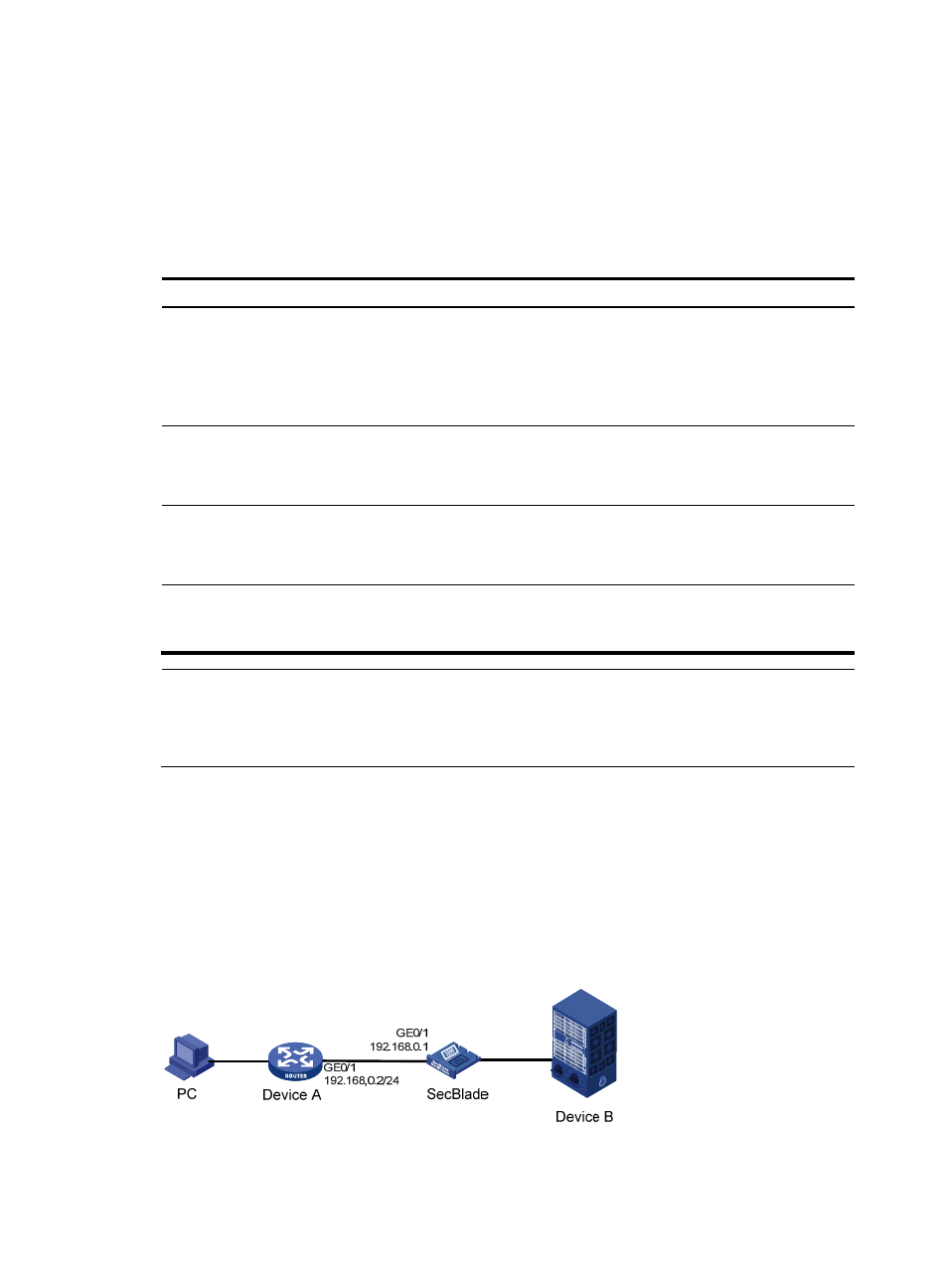Ping and tracert configuration example, Network requirements – H3C Technologies H3C SecBlade NetStream Cards User Manual
Page 271

256
corresponding debugging function, or use the undo debugging all command to disable all the
debugging functions.
Output of debugging information depends on the configurations of the information center and the
debugging commands of each protocol and functional module. Displaying the debugging information
on a terminal (including console or VTY) is a common way to output debugging information. You can
also output debugging information to other destinations. For more information, see the chapter
“Information center configuration.” By default, you can output debugging information to a terminal by
following these steps:
To do…
Use the command…
Remarks
Enable the terminal
monitoring of system
information
terminal monitor
Optional
The terminal monitoring on the console is
enabled by default and that on the
monitoring terminal is disabled by default.
Available in user view
Enable the terminal display
of debugging information
terminal debugging
Required
Disabled by default
Available in user view
Enable debugging for a
specified module
debugging { all [ timeout time ] |
module-name [ option ] }
Required
Disabled by default
Available in user view
Display the enabled
debugging functions
display debugging [ interface
interface-type interface-number ]
[ module-name ]
Optional
Available in any view
NOTE:
To display the detailed debugging information on the terminal, configure the debugging, terminal
debugging and terminal monitor commands. For more information about the terminal debugging and
terminal monitor commands, see the chapter “Information center configuration.”
Ping and tracert configuration example
Network requirements
As shown in
, the PC failed to telnet the SecBlade. It is required to determine whether the PC and
the SecBlade can reach each other. If they cannot reach each other, locate the failed nodes in the
network.
Figure 81 Ping and tracert network diagram
